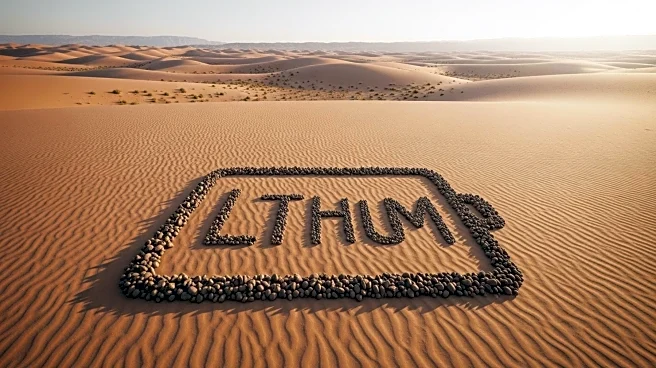What's Happening?
The Trump administration is seeking a 10% equity stake in Lithium Americas as part of a renegotiation of a $2.26 billion federal loan for the Thacker Pass lithium mine in Nevada. This project, a collaboration between Lithium Americas and General Motors, is expected to be a major lithium source in North America. The White House's request is motivated by concerns over the company's ability to repay the loan amid falling lithium prices. General Motors, which holds a 38% stake in the project, is being asked to commit to purchasing lithium from the mine and to cede some control over the project.
Why It's Important?
The Trump administration's pursuit of an equity stake in Lithium Americas underscores a strategic effort to enhance U.S. involvement in critical mineral industries. This move aims to secure domestic production capabilities and strengthen global supply chains for lithium, a key component in electric vehicle batteries. The administration's actions could influence the future of U.S. mining operations and impact the broader economic landscape, particularly in the renewable energy and automotive sectors. The outcome of these negotiations could set a precedent for federal involvement in private sector projects.
What's Next?
Negotiations between the Trump administration, Lithium Americas, and General Motors are ongoing, with potential updates on the loan modification and equity stake arrangement expected. The administration's interest in securing equity stakes in critical mineral projects may lead to further federal investments in Nevada's mineral supply chain. Industry stakeholders and investors will be closely watching these developments, as they could have significant implications for the U.S. mining sector and related industries.
Beyond the Headlines
The Trump administration's strategy of acquiring equity stakes in private companies raises questions about the extent of government involvement in the private sector. This approach could lead to increased federal influence over critical industries, potentially altering the dynamics of U.S. mineral production and processing. The ethical and economic implications of such government interventions will likely be a topic of discussion among policymakers and industry experts.










